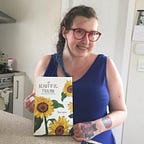Circle of Courage: Larry Brendtro, Martin Brokenleg, and Steve Van Bockern.
Independence: Autonomy, Confidence, Assertiveness, Responsibility, Leadership, Inner control, Self discipline
The definition of Independence according to the Oxford Dictionary describes Independence as “the freedom to organize your own life, make your own decisions, etc. without needing help from other people.”
Chronic illness changes you. You can choose whether you become stronger, and more determined, to achieve your goals and live life to the fullest, as much as you can. Or, you can choose to become a victim of your circumstances.
Independence does not mean you have to do everything on your own. Take leadership / Take action of your illness, research it, keep a diary of how it affects you, what causes a flare? Your journey can also be an opportunity to use your skills and knowledge to help others who are going through similar circumstances and who are unsure how to continue to live, allowing yourself to take control of your life.
Independence helps build confidence and self-discipline. Confidence to understand how your illness affects you, , learning to look after yourself, and manage your illness. It not only takes confidence, It also takes a lot of self discipline, taking the medication resting when you should, eating the right foods, and not overdoing exercise, etc.
Your Journey is yours, how do you want to live your life?
Generosity: Support, Pro social, Empathy, Loyalty, Sharing, Caring, Altruism
According to the Oxford dictionary, generosity can be defined as “the fact of being generous, willing to do kind things or give somebody money, gifts or time freely.”
Your journey can also be an opportunity to use your skills and knowledge to help others who are going through similar circumstances and who are unsure how to continue to live, which shows generosity, that relates to the 4th R of defining resilience to Remember, (4th R of Resilience,) your experience, and what you can teach to others. The 4 Rs consist of, Realise, respond, recognise and Remember.
Generosity also means that you are generous to yourself, resting when you need to and listening to your body if you don’t get all that you wanted to get done, unfinished, remember your “body is fighting against itself.” It’s Ok if you need to have a rest day, think about the spoon theory developed by Christine Miserandino butyoudontlooksick.com .
Generosity is a choice. Life is a choice! Everything we do, what we say is a choice. You can choose to become bitter and resentful about your past or think about the good that’s happened. Become aware of your values, in order for you to make the right choices, it’s your values that are the driving force towards what you choose as the “right choice” for you. I challenge you to try and respond, to take action about how you view your past and remember how it affected you. Can you use your experience to help others? Making deliberate bad choices can lead to a string of bad experiences and negative consequences and the risk of negativity, filling up your life.
Think about this question, “What does my best self tell me to do?” How can I use my experiences to spread generosity to others?
